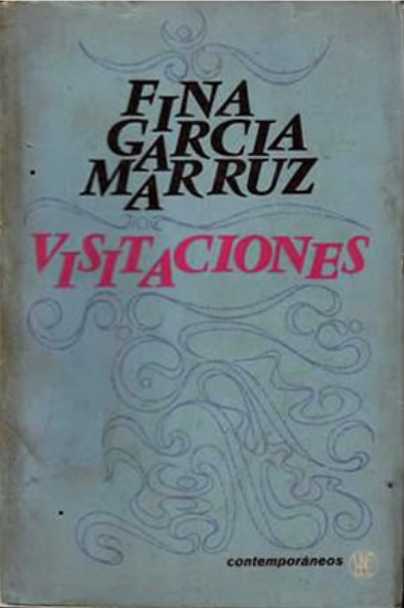4.1.2.10.4 The notebook “Visitations”, published by Fina García Marruz (1923 – )

“Visitaciones,” from 1970, contains Fina García Marruz’s entire poetic output since 1951. It consists of six notebooks containing pieces from the pre- and post-revolutionary periods, often without specifying the date of composition. Of these notebooks, the title track and “Ánima viva” are particularly representative of her poetry.
This collection of poems reveals the richness of content and form into which he has condensed his poetry, governed by an essential religiosity that is not, however, merely a religious cult but rather lends his lyricism a dynamism also associated with human ethics. We see an evolution in the abandonment of formal purity in favor of a more authentic expression, with the familiar confessional tone.
In addition to the aforementioned sections, the collection also includes sections titled “Blues,” “Little Songs,” “The Yellow Land,” and “On the Death of Ernesto Che Guevara.” In “The Yellow Land,” Spanish culture, its cities, and symbols serve as the leitmotif of a lyrical homage that includes leading literary figures such as Antonio Machado.
One of the most evocative pieces in the collection is “The Grave Autumn Is Coming,” a season that is echoed in the verses of this collection. In this sense, the ephemeral nature of life, the falling leaves, comes into play with the eternal through iteration, that return to being above the ashes that characterizes the world’s progress:
“The serious autumn is coming, it is already announced
since the same afternoon a little pale
of the clearest April. A cold breath
It sometimes appears in the middle of summer
like an importunate person knocking at the door
of happy diners. (…)
Or will our bones be much less
what pecked fruit is thrown
and grows back? Blow if you want the cold
over the radiant April. And these leaves
yellow falling leaves do not scare us
more than the hat that flew somewhat far away
of its happy owner, and flying
from its blissful and forgotten straw
to the old branches and the birds”
The theme of motherhood recurs in these pages, in a way as the reverse of autumn, as well as the religious feeling, especially in the notebook “Ánima viva” in whose first part there are sonnets of a refined lyricism, in which the poetess also dialogues with God, in a way that sometimes resembles the religious intimacy of Dulce María Loynaz:
“Always that same sound in your ears.
Forgive me, Lord. Always that game.
of my weakness and your mercy.
You must be fed up, and I’m scared.
Who saw you in bloom? How many knew you?
since his youth? Then the smile
It was for you, the wait was for you,
and the innocent blush, and the secret.
You want us in season, men, not children,
and we seek only your mercy.
To be comforted is what we ask for
from so much wandering, with the hand of love
with which a mother raises her sobbing
son saying: if it’s nothing, if not.”
Social poetry is also captured in these pages, but through a creative internalization that distinguishes Fina’s verses from a certain monolithic nature in the literary material of her time. This line includes the verses for the death of Ernesto Che Guevara, the poem “On the Disappearance of Camilo Cienfuegos,” and foreign revolutionary leaders, such as “On the Death of Martin Luther King” and “To President Ho Chi Minh.” In addition to the aforementioned elements, a lyrical revelation of Cuban identity is appreciated, going ever more deeply into the core of identity.








